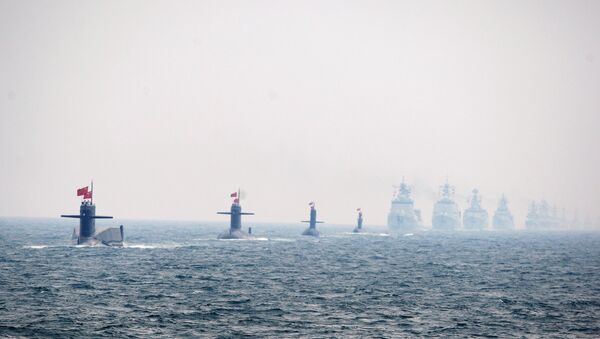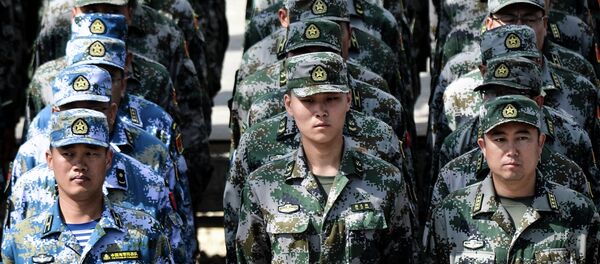With the Chinese Foreign Ministry noting that a final agreement has not yet been reached, officials have emphasized that the creation of the piece of maritime military infrastructure in Africa will assist the Chinese Navy in fulfilling its international obligations, first and foremost, its peacekeeping missions under the auspices of the UN.
Djibouti, located on the Horn of Africa between Eritrea to the north and the chaos-hit Somalia to the south, has long been considered a key strategic location for Western militaries, with ships based in Djibouti City's port facilities capable of controlling the entrance to and exit from the Suez Canal and the Gulf of Aden. A long-term partner for Washington and NATO, the country is presently home to Italian, French, Japanese and Pakistani military facilities.
Russian experts commenting on the prospects for the new base emphasize that its construction carries with it several important implications – political, economic, and military.
China's First Military Base Abroad
Asked for comment on the prospective base by the Svobodnaya Pressa newspaper, Vasili Kashin, an expert on the Chinese military at the Moscow-based Center for Analysis of Strategies & Technologies, suggested that the negotiations are "important, first and foremost, from a political point of view."
According to Kashin, "as far as we can understand, this is a very modest object in terms of its scale, not unlike the logistics centers used in their own time by the Soviet Navy. However, the political significance of the event trumps its military importance. After all, this will be the first real Chinese military base abroad, even if it is truncated in form."
"At the same time," Kashin suggests, "the existence of this facility will be explained as an indication that the Chinese are set on increasing the size of their military forces in the Middle East and Africa. Since 2009, the PLA Navy has taken part in anti-piracy patrols in the Gulf of Aden, and they were able to do it without a base in the region, capable of adequately supplying their admittedly limited forces."
First Step to Great Power Status
Kashin believes that ultimately, the plans for the Djibouti base are really "a strong indication that China is becoming a full-fledged naval great power, on par with France and Britain, if not to speak of Russia or the United States. It is an indication that Beijing seeks to secure its interests abroad, including via the use of its armed forces. And its interests are very considerable."
The analyst suggests that over the last several years, he has observed the Chinese Navy's "huge leap" forward in becoming a real ocean-going navy. "If we are speaking about the surface fleet, and especially in the field of amphibious assault ships, the Chinese are ahead not only of contemporary Russia; in terms of a number of capacities they surpass even the Soviet Union of the mid-1980s."
"The reality," Kashin notes, is that "China has already built one of the most powerful navies in the world, capable not only of demonstrating its presence, but serving as a major force capable of striking targets inland, large ambitious landing operations, etc. And this is just the beginning. I am confident that after Djibouti, the PLA Navy will build other foreign bases, not only in Africa, but in the Middle East, and after that, perhaps in Latin America as well."
The Chinese Navy, the expert recalled, has shown signs of growing activity in recent years, their surface and submarine fleets increasingly making their presence felt all across the world's oceans, from Latin America and Africa to the Black and Baltic seas. "For the Chinese, long-haul trips lasting from a few months to half-a-year have become commonplace. They are creating a completely new generation of sailors, who are now really spending their lives at sea, and who are subjected to some very expensive training."
According to Kashin, China, "which not so long ago had a coastal fleet, devoted to the provision of coastal defense, and to fighting for islands along its coast, has factually outgrown these limits, [its fleet] gradually transforming into a real ocean-going fleet."
US Response Inevitable
Alexei Fenenko, Associate Professor of International Politics at Moscow State University, complemented Kashin's analysis, suggesting that the rise of the Chinese Navy, including their imminent arrival in Djibouti, will inevitably lead to a deterioration of relations with the United States, previously the world's sole naval superpower.
The analyst believes that "it is clear, that the Chinese base in Djibouti will have an impact on Sino-US relations. The United States has long been worried about China's intentions to build an ocean-going fleet. Therefore, in my view, Washington will be working to strengthen the concept of containment vis-à-vis Beijing."






